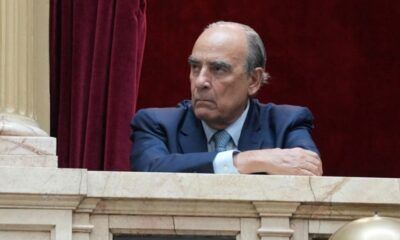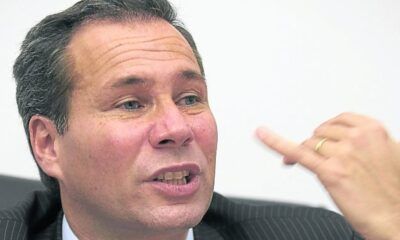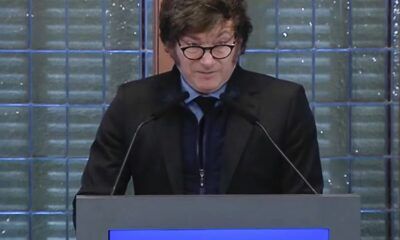INTERNACIONAL
Fabio Ochoa, el ex capo del Cartel de Medellín, fue deportado a Colombia tras purgar una pena de 25 años en Estados Unidos por narcotráfico

INTERNACIONAL
Netanyahu warns Houthis amid calls for Israel to wipe out terror leadership as it did with Nasrallah, Sinwar
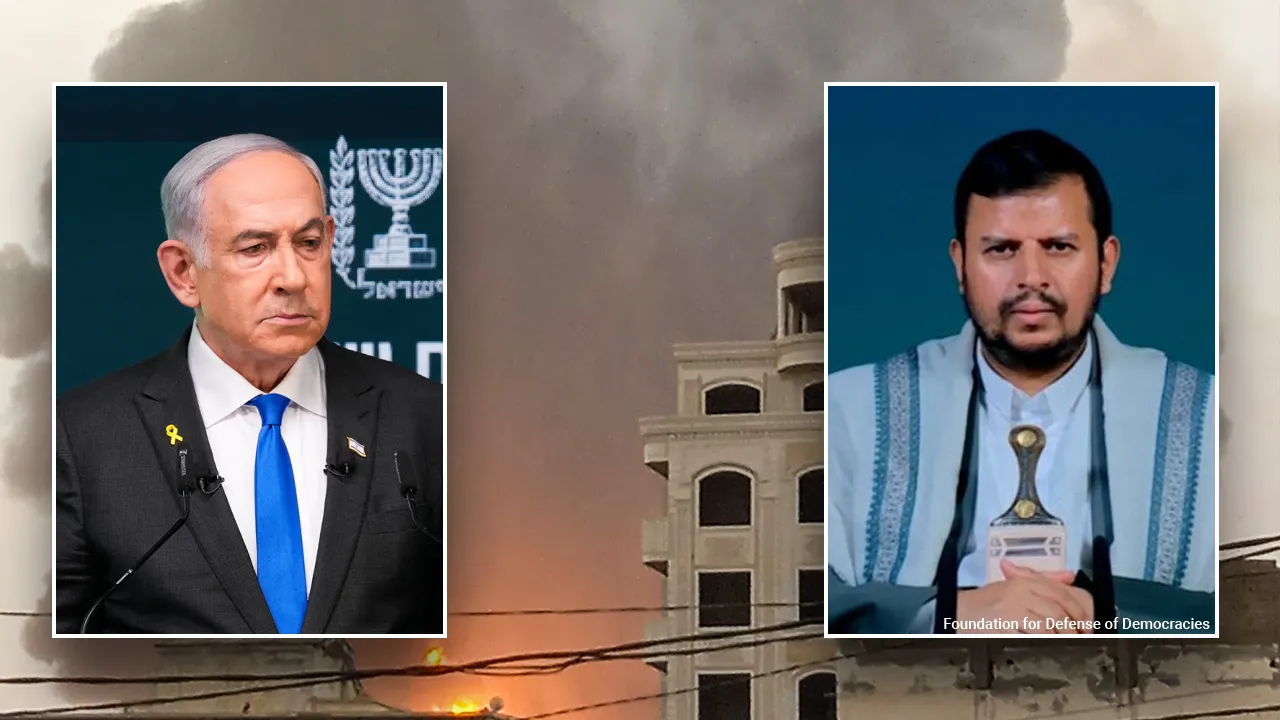
TEL AVIV – Amid negotiations to forge a hostages-for-cease-fire deal between Israel and Hamas in Gaza, and as the truce with Hezbollah in Lebanon mostly holds, Jerusalem has an opportunity to direct additional military resources to cut Yemen’s Houthi leadership down to size, according to former Israeli officials.
«Israel has to accelerate and expand attacks [in Yemen], not only on national infrastructure but also on the political leadership,» retired Maj. Gen. Amos Yadlin, former head of Israeli Military Intelligence and president of MIND Israel, told Fox News Digital.
«Targeted killings are an option if there is good intelligence to enable such operations. The leaders of the Houthis should meet Sinwar and Nasrallah and the sooner the better,» he added.
US NAVY SHIPS REPEL ATTACK FROM HOUTHIS IN GULF OF ADEN
Israeli Prime Minister Benjamin Netanyahu split screen with Abdul Malik Badruddin Al-Houthi, leader of the Houthis. (Getty Images)
An Israel Defense Forces strike killed Hezbollah terror master Hassan Nasrallah in Beirut, Lebanon, on Sept. 28, while Israeli ground troops eliminated Hamas chief Yahya Sinwar in the southern Gaza city of Rafah on Oct. 17, and Hamas’ Ismail Haniyeh in Iran last summer.
Houthi terror leaders:
The Houthis are led by Abdul Malik Badruddin Al-Houthi (Abu Jibril), whom the U.S. State Department designated as a Specially Designated Global Terrorist in 2021.
According to the Foundation for Defense of Democracies (FDD), other top officials include Abdul Khaliq Badruddin Al-Houthi (Abu Yunis), commander of the Republican Guard (Presidential Reserve), whom the U.S. also blacklisted in 2021; Muhammad Ali Al-Houthi (Abu Ahmad), a member of the Supreme Political Council; and Abdul Karim Amiruddin Husayn Al-Houthi, interior minister and director of the executive office of Ansar Allah.
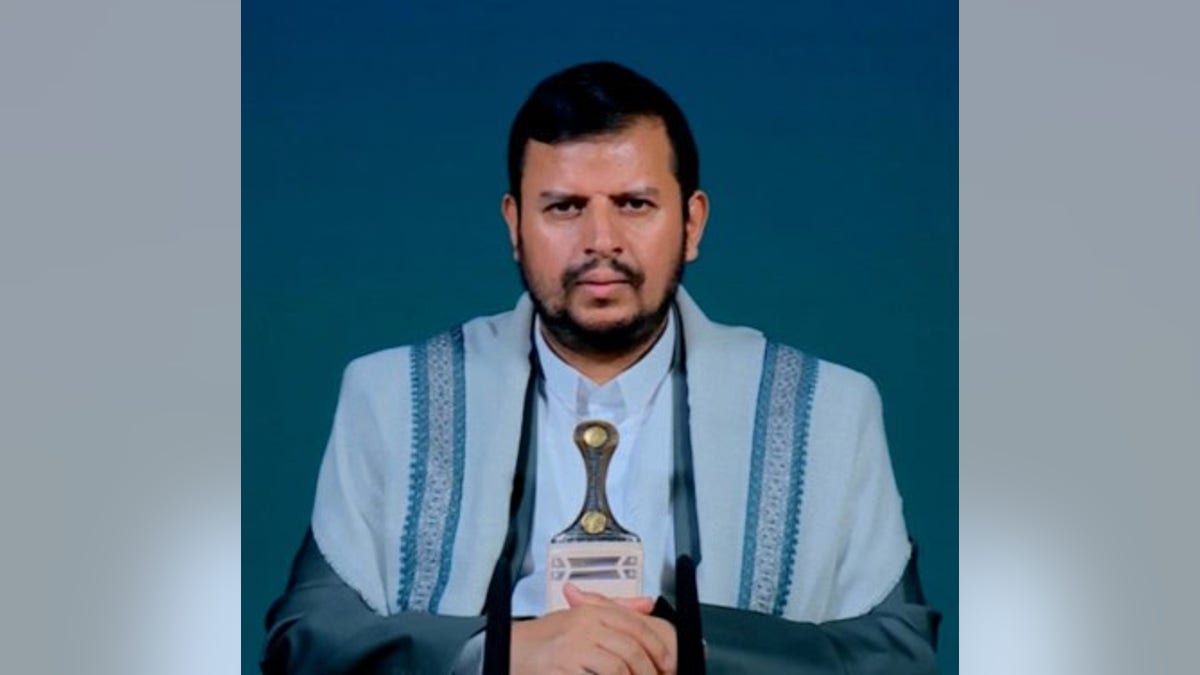
An undated picture of Houthi terror leader Abdul Malik Badruddin Al-Houthi. FDD’s Long War Journal notes he was designated by the State Department as a Specially Designated Global Terrorist in 2021. (FDD’s Long War Journal)
Joe Truzman, a research analyst at FDD’s Long War Journal, told Fox News Digital that intel-based assassination operations take time and that, to date, the Israelis have been preoccupied with Gaza and Lebanon.
«But it can be done. We’ve seen Israel target nuclear scientists and military personnel in Iran. This can be replicated in Yemen. If the Houthis continue these attacks, more of Israel’s focus turns to them,» Truzman said.
Maj. Gen. (res.) Yaakov Amidror, a former national security adviser in Israel and a senior fellow at the Washington-based JINSA think tank, outlined to Fox News Digital the intricacy of such attempts.
US MILITARY CONDUCTS SUCCESSFUL AIRSTRIKES ON HOUTHI REBEL FORCES IN YEMEN
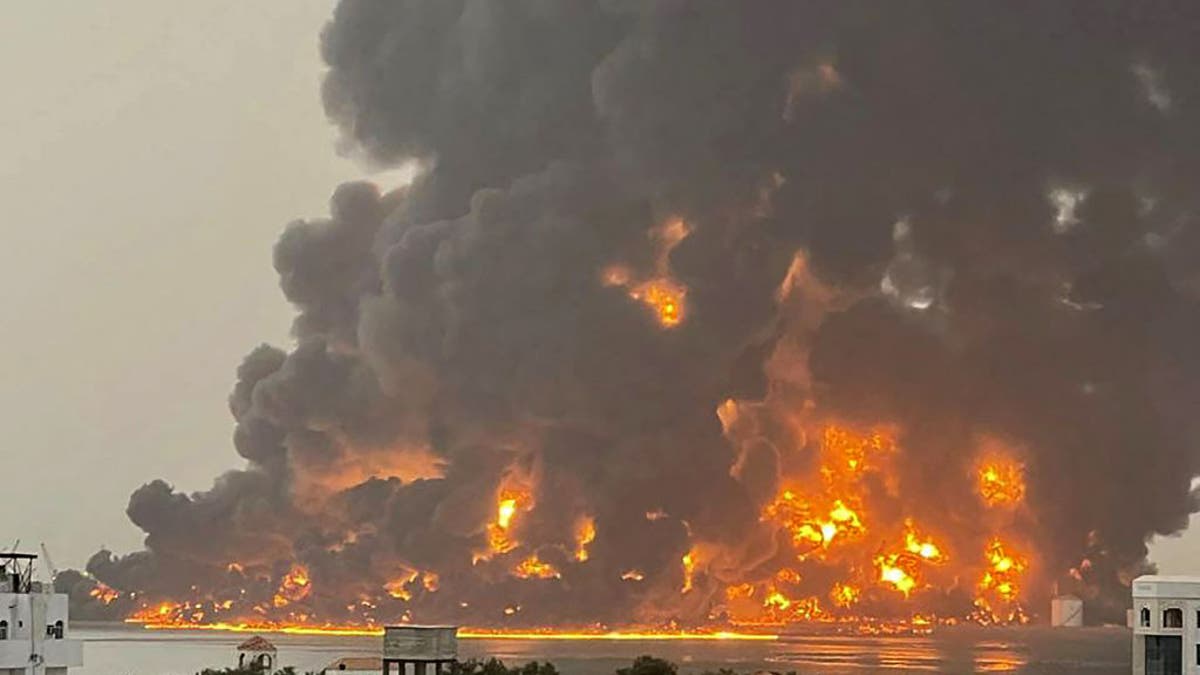
A handout picture obtained from Yemen’s Huthi Ansarullah Media Center shows a huge column of fire erupting following IDF strikes in the Yemeni rebel-held port city of Hodeida on July 20, 2024. (Ansarullah Media Center/AFP via Getty Images)
«You have to be sure that a target is in the place that you bomb. If he has three houses, how do you know which one he’s in? You need real-time intel,» said Amidror, who noted that it was relatively easy for Israel to hit Nasrallah from the moment his exact location was known.
«It took 15-20 minutes to strike [the Hezbollah headquarters] in Beirut because it is so close to Israel,» he said. «Yemen is a huge logistical operation, it requires refueling jets, let alone the tactical issues on the ground. A totally different sort of intelligence is needed.
«Both Nasrallah and Sinwar were known enemies and we amassed information on them over many years, but the Houthis were not a priority,» continued Amidror. «The way forward is to begin intensifying the collection of intelligence by building bridges with those who can provide it.»
Overnight Wednesday, the IAF struck targets some 1,200 miles away in Yemen, after a Houthi missile hit an elementary school in Ramat Gan, just east of Tel Aviv.
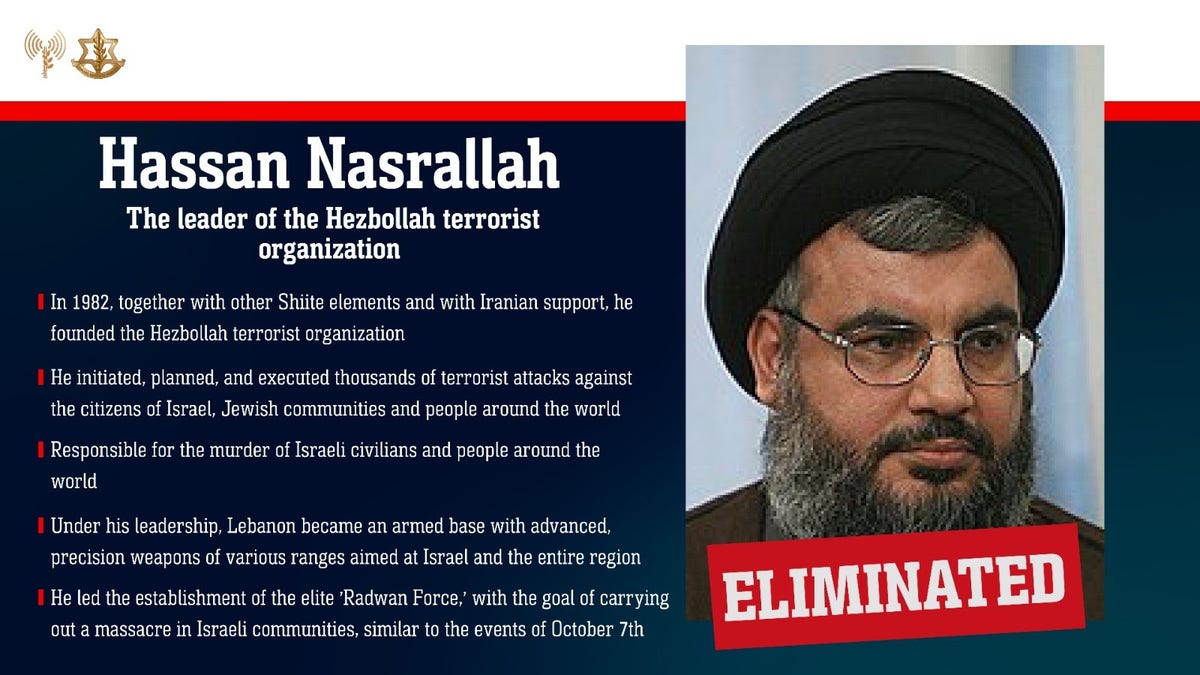
IDF profile picture showing Hezbollah terror chief Hassan Nasrallah, who the IDF confirmed was killed in a strike in September. (IDF Spokesman’s Unit)
The pre-dawn strikes were conducted in two waves, targeting the Ras Isa oil terminal on the Red Sea, the Hodeidah and Salif ports, as well as the D’Habban and Haziz power stations in Sana’a, according to reports.
In July, a Houthi drone killed a civilian in Tel Aviv, prompting the IAF to strike Yemen’s Hodeidah Port. Israeli jets also conducted dozens of strikes in the area of Hodeidah in September.
Overall, the Houthis have launched over 200 missiles and 170 drones at Israel since Hamas’s Oct. 7, 2023, massacre of 1,200 people. Since then, the Houthis have also attacked more than six dozen commercial vessels – particularly in the Bab-el-Mandeb, the southern maritime gateway to Egypt’s Suez Canal.
«The distance to Yemen is about the longest range the IAF has ever flown, but they could expand that with more refueling,» Brig. Gen. (res.) Relik Shafir, a former IAF pilot who took part in Operation Opera, the attack on Iraq’s Osirak nuclear reactor on June 7, 1981, told Fox News Digital.
«It’s uncomfortable for a pilot to sit in an F-15, F-16 or F-35 for seven hours. You need to be fully aware and at your top level of concentration,» he continued. «Israel can strike far enough for any existing enemy and the air force uses guided missiles that fire at a precision of two or three feet.»
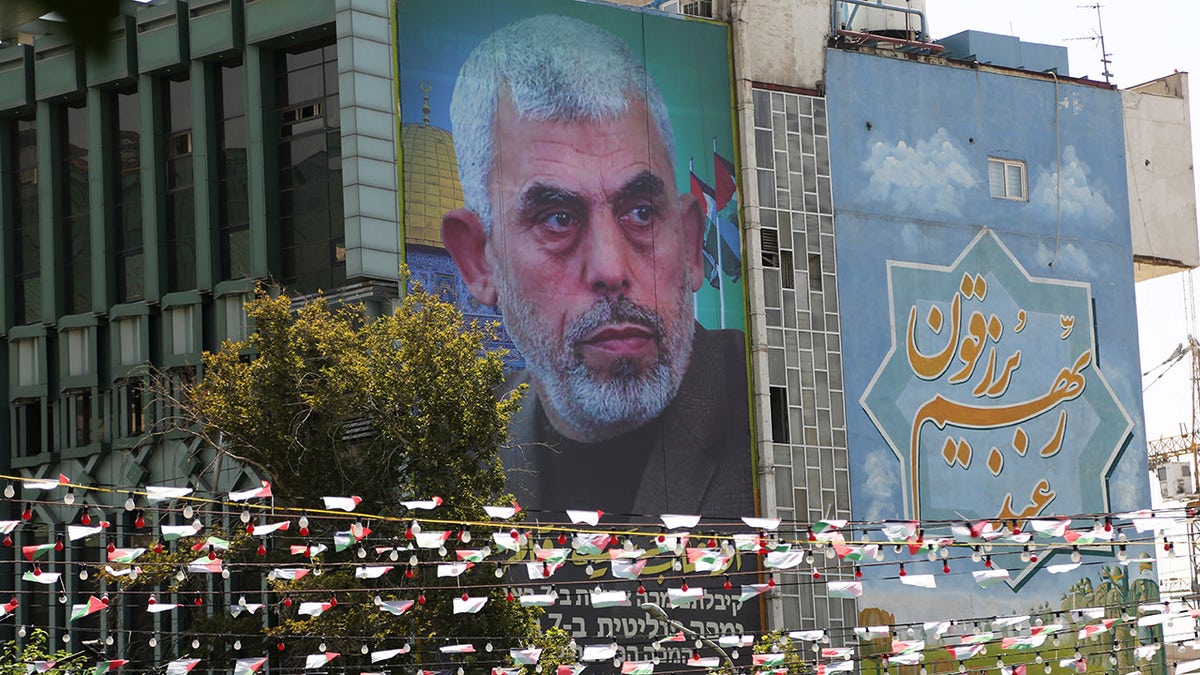
Deceased Hamas terror chief Yahya Sinwar on a poster in Tehran, Iran, Aug. 13, 2024. (Fatemeh Bahrami/Anadolu via Getty Images)
On Monday, Israeli Defense Minister Israel Katz issued a warning to the Houthis, «We will strike their strategic infrastructure and decapitate their leaders. Just as we did to [former Hamas chief Ismail] Haniyeh, Sinwar and Nasrallah, in Tehran, Gaza and Lebanon – we will do in Hodeidah and Sanaa.»
Jerusalem had previously refrained from taking responsibility for the July 31 killing of Haniyeh, who traveled to the Iranian capital for the inauguration of the country’s president.
On Friday, U.S. Defense Department spokesman Maj. Gen. Pat Ryder stated that the Israelis «certainly have a right to defend themselves.»
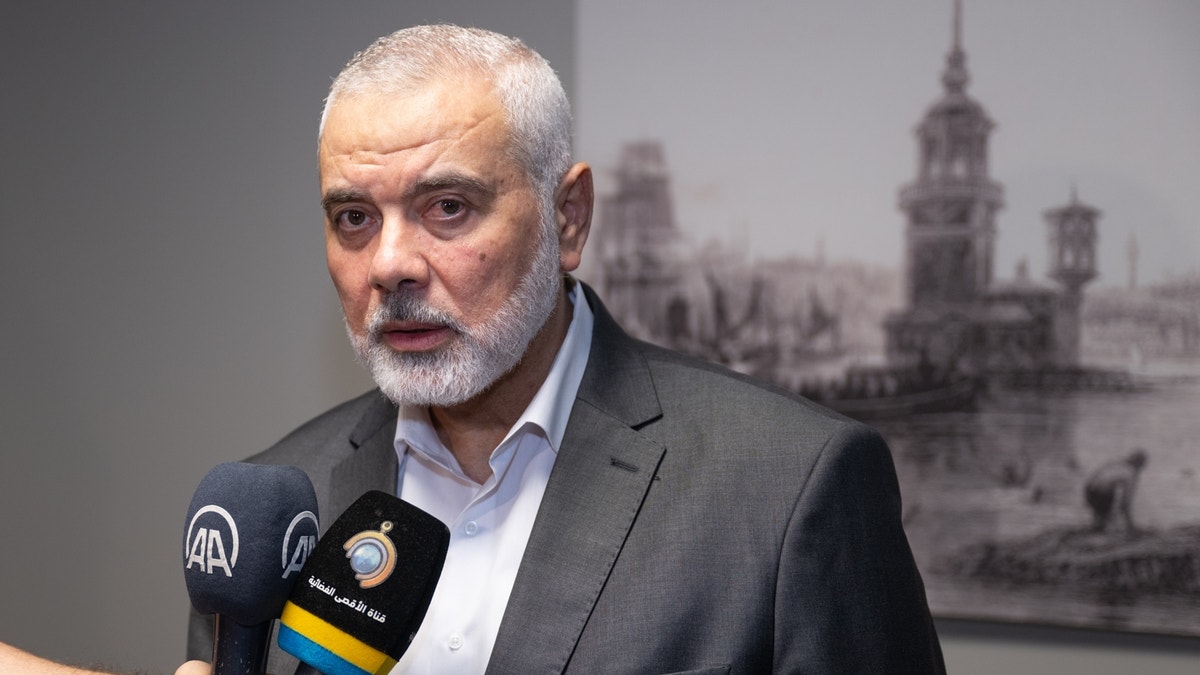
Ismail Haniyeh of Hamas and his bodyguard were killed in an assassination blamed on Israel on Aug. 1, 2024 in Tehran. (Cem Tekkesinoglu/Anadolu Agency via Getty Images)
The Houthis «are a danger to everybody in the Middle East,» former Mossad head Efraim Halevy told Fox News Digital. «In the end, most countries in the region will be interested and willing to cooperate in efforts to bring about the end of these attacks, which have no justification whatsoever.»
ISRAELI AIRSTRIKES TARGET YEMEN’S HOUTHI-CONTROLLED CAPITAL OF SANAA, PORT CITY OF HODEIDA

Israeli Air Force jets depart for strikes in Yemen. (IDF)
Halevy insisted that «terrorist activity of every kind is a challenge that has to be met with an appropriate response. The Houthis have incurred losses and if they continue to provoke us, we will have to do more.»
In March 2015, a Saudi-led coalition launched a military intervention against the Houthis at the request of then-Yemeni President Abdrabbuh Mansur Hadi, who had been ousted from Sana’a the previous September. Yemen’s civil war remains stalemated, with the internationally recognized government, led by the Presidential Leadership Council since 2022, based in Aden, in the country’s south, since February 2015.
A source close to that government told Israel’s Kan public broadcaster on Saturday that Jerusalem should initiate assassinations of Houthi leaders, while the Saudi outlet Al-Arabiya reported that senior Houthi officials had fled Sana’a out of concern they would be targeted.
«We need to understand more deeply what it is that would cripple the Houthis’ ability to operate,» former Israeli national security adviser Eyal Hulata told Fox News Digital. «For this, we need more intelligence, more assessments and coordination between the different parties.»
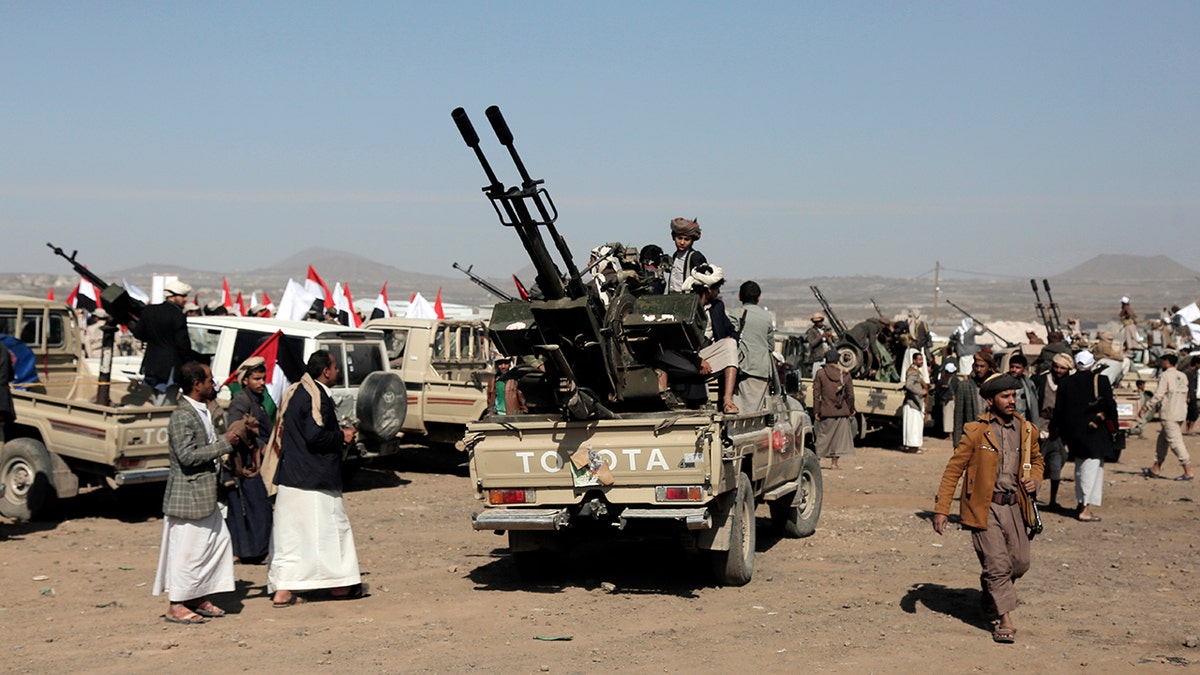
Houthi fighters man heavy machine guns mounted on vehicles at a rally in support of Palestinians in the Gaza Strip. (Mohammed Hamoud/Getty Images)
The big question, Hulata posited, is whether the Houthis will continue to pose a threat if Israel and Hamas agree to a cease-fire.
«If they become a major enemy, Israel will need to address this by directing resources it was hoping to avoid – and maybe is still hoping to,» he said.
CLICK HERE TO GET THE FOX NEWS APP
On Sunday, Prime Minister Benjamin Netanyahu urged Israelis to be «patient» while intimating Jerusalem was preparing to up the intensity of its campaign against the Houthis.
«We will take forceful, determined and sophisticated action. Even if it takes time, the result will be the same,» he vowed. «Just as we have acted forcefully against the terror arms of Iran’s axis of evil, so too will we act against the Houthis.»
-
POLITICA3 días ago
Nisman: el Gobierno acepta el pedido del fiscal y levanta el secreto sobre los espías inorgánicos de la SIDE y el Ejército
-
CHIMENTOS3 días ago
Se confirmó el escandaloso motivo de la crisis entre Javier Milei y Yuyito González: «Él estaba cerca de Graciela Alfano»
-
POLITICA2 días ago
El Gobierno reveló los pasos para salir del cepo cambiario y alcanzar la “flotación limpia”: cuáles son
-
POLITICA2 días ago
Javier Milei le manda otro mensaje a Victoria Villarruel: mantendrá congelados los sueldos de ministros y funcionarios
-
SOCIEDAD2 días ago
«Playa para pocos: cómo los privados se apoderaron de la costa argentina y los turistas se van a Brasil»
-
SOCIEDAD2 días ago
Ciberataques en el sector salud: El impacto en una Argentina expuesta y el caso del Hospital Churruca de la Policía Federal

















